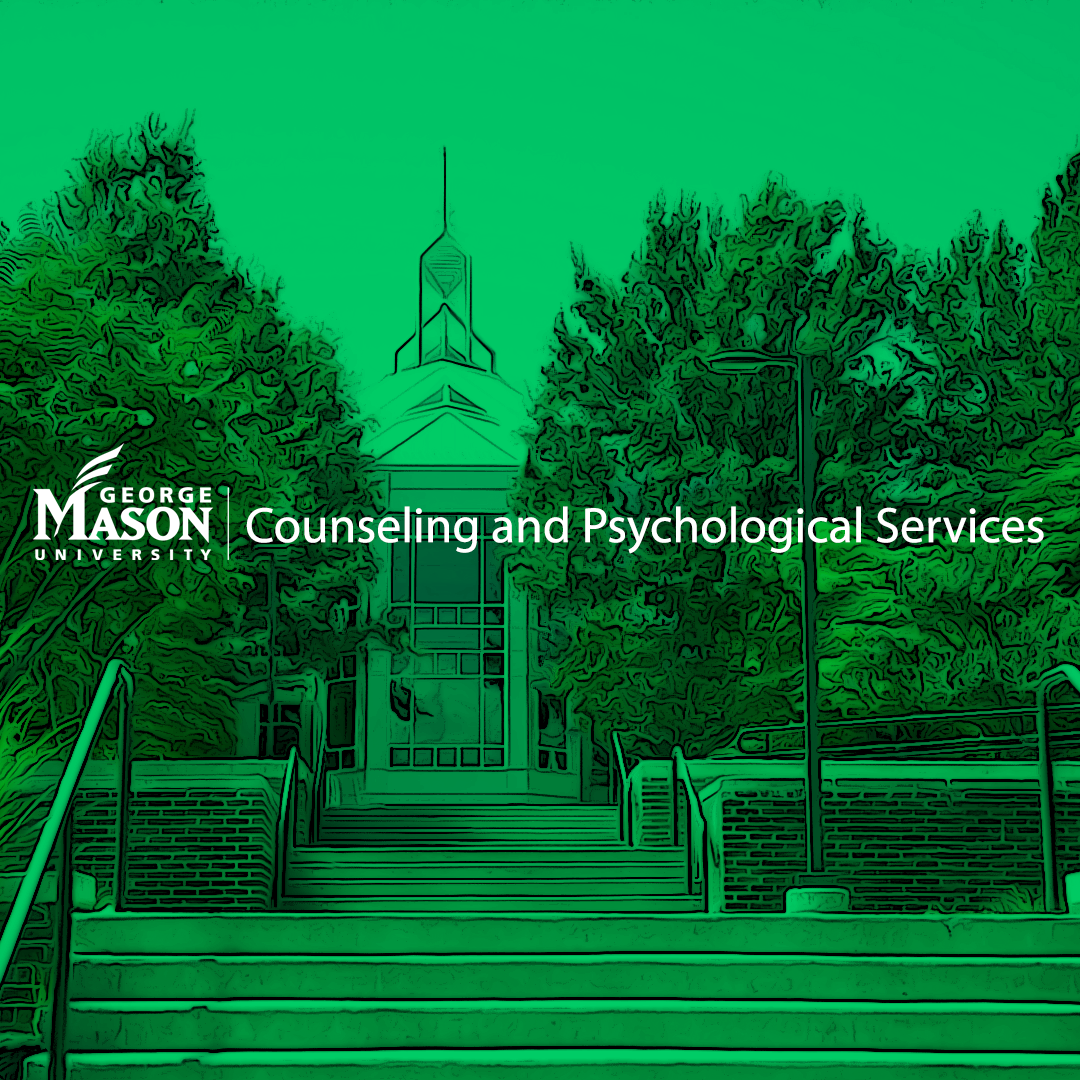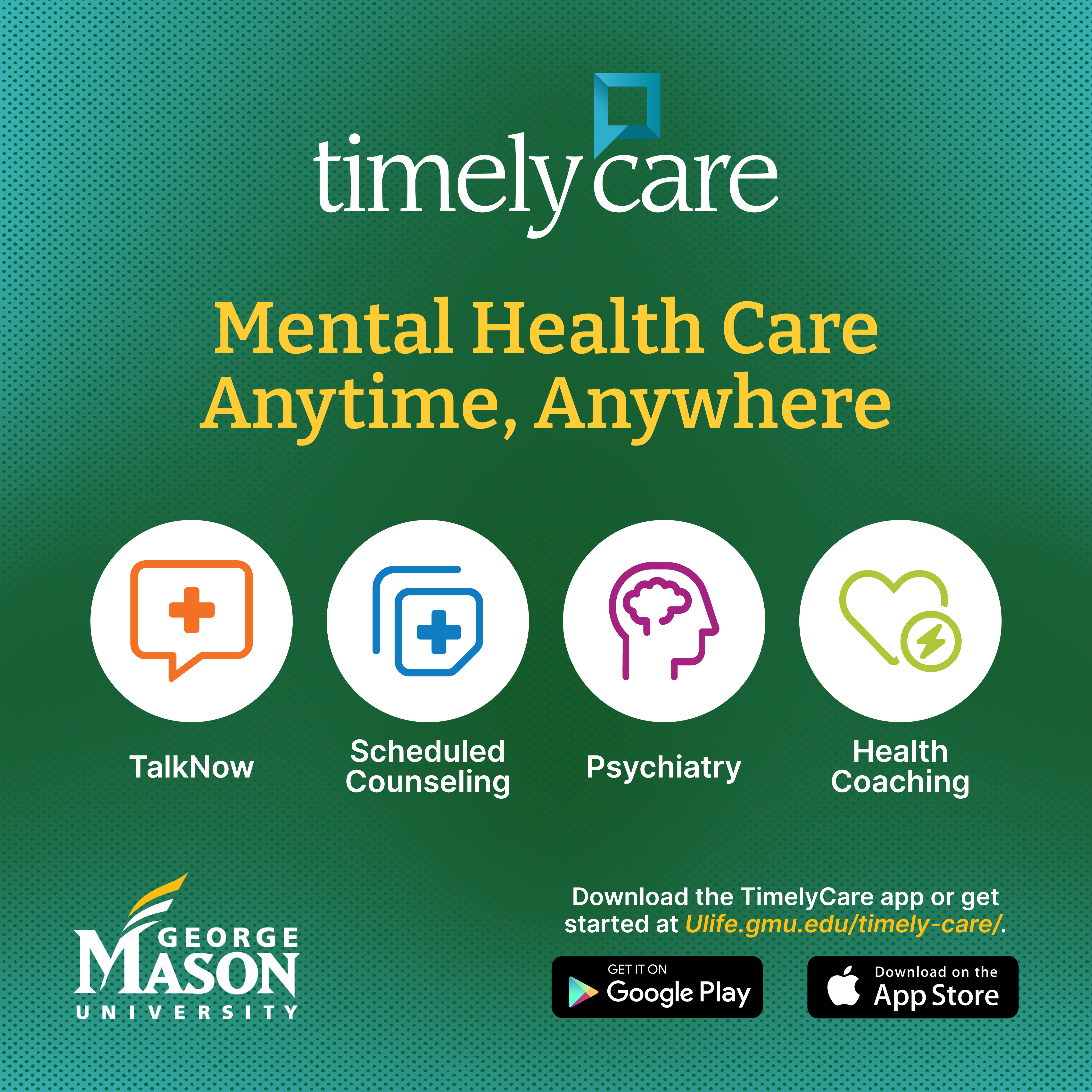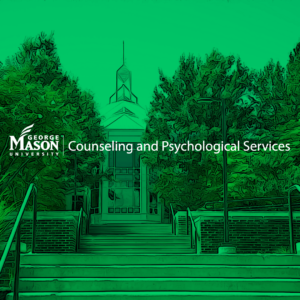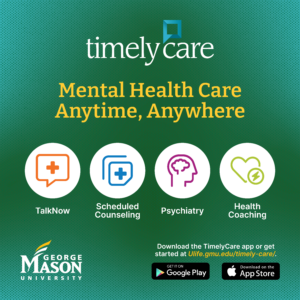Student Health Services provides evaluation, screening and referrals for mental health concerns. Call 703-993-2831 to schedule an appointment with a healthcare provider.
Issues that students may want to talk about include:
- Feelings of anxiety, panic, depression or sadness about school or life
- Concerns about sleep (too little or too much sleep)
- Medications stopped working or not working as well
- Unusual changes in your normal behavior
- Difficulty concentrating
- Difficulty adjusting to a new routine or environment
- Feeling stressed or overwhelmed
- Concerns about alcohol use or taking drugs
- Distress about eating, food, or weight
- Thoughts of harming yourself or others
- Worries or concerns about a friend or another person’s mental health
- Interpersonal violence
Sometimes mental health concerns can impact a student’s physical health and well-being. Stomach pains, headaches, feelings of tiredness, can be an effect of mental health concerns.
About 1 in 5 young adults live with a mental health condition—half develop the condition by age 14 and three-quarters by age 24 (NAMI). Discussing concerns about your mental health with someone is an important first step to getting help. Speaking up and asking for support is a sign of strength.
Student Health works with other Mason offices such as Counseling and Psychological Services (CAPS), the Office of Disability Services, Student Support and Advocacy Center (SSAC), as well as community specialists to help a student understand the cause of their concern and get the support they need to be successful at Mason.
Eating Disorders
If you are concerned about unhealthy eating habits for yourself, a friend, or family member, schedule an appointment (703-993-2831) with one of our healthcare providers for information and assistance. An eating disorder may be a way of trying to cope with underlying problems. Food concerns, body dissatisfaction, and low self-esteem can prevent an individual from achieving their full potential. Unfortunately, some people with eating disorders may not recognize that there is an issue. Awareness, as well as early detection and intervention, are important to prevent problematic behaviors from evolving into more serious conditions that affect one’s psychological and physical well-being.








